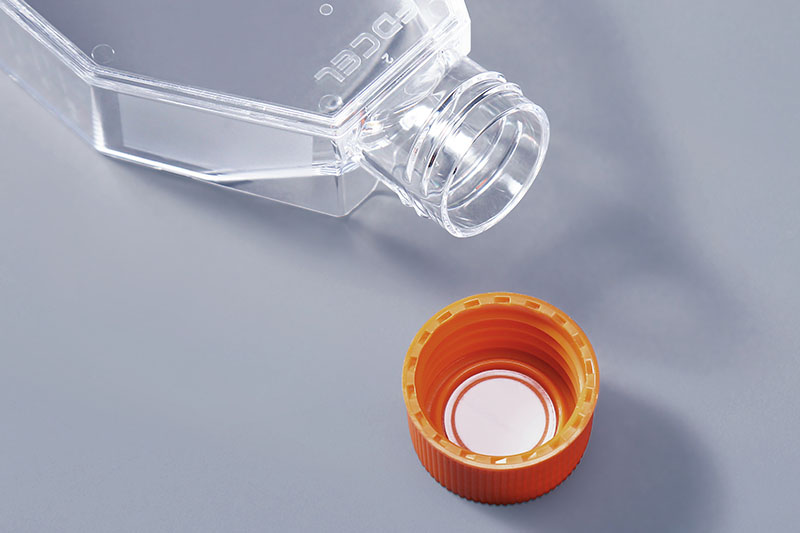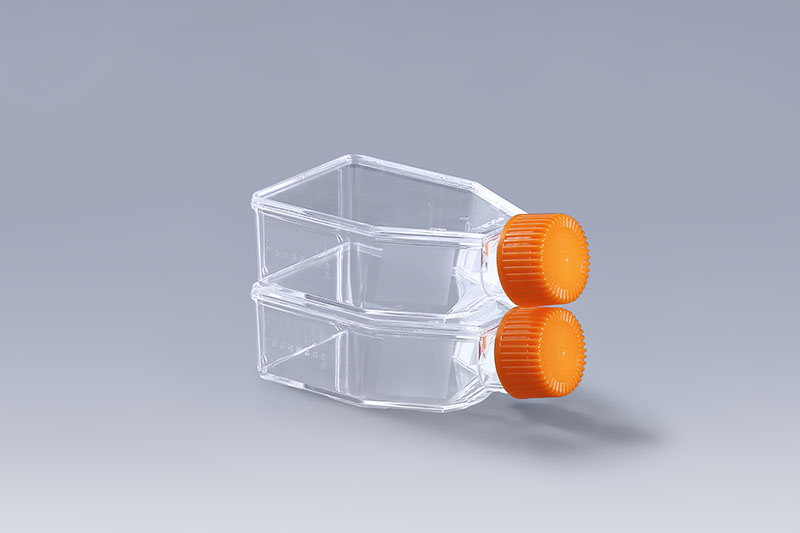How to Promote Cell Attachment in Cell Culture Flasks
Making cells adhere better is the key to ensuring their normal growth in the later stage. Sometimes we encounter the situation that the cells in the cell culture flasks do not adhere well. The following methods can better promote cell adherent growth.
1. Increase the seeding density: cells mainly adhere to the surface of the support through the extracellular matrix secreted by themselves. If the cell adhesion is not good, the number of seeding may be too small to secrete enough extracellular matrix. Seeding density to improve adherence.
FuDau T25 Cell Culture Flasks
2. Increase the adhesion factor: The serum contains the adhesion promoting factor, and the lack of this component in the serum-free culture system will greatly reduce the adhesion effect of the cells. Some serum can be appropriately added to promote cell adhesion.
3. Improve the quality of inoculated cells: the state of the cells themselves will also affect their adherence effect. Make sure that the cells are in good condition before inoculation, and do not use aged cells.

FuDau T75 Cell Culture Flasks
4. Use TC-treated consumables: cell culture flasks are commonly used consumables for adherent cell culture. This consumable is divided into two types: TC-treated and non-TC-treated surfaces. When choosing consumables, you should choose TC-treated products, so that The product of the product introduces a hydrophilic group on the surface, which is more conducive to the growth of cells.
In addition, poor cell adhesion may also be due to the introduction of other sources of contamination in cell culture flasks, such as bacteria, fungi, mycoplasma, etc., operators should pay attention to strictly implement aseptic procedures to avoid contaminating cells.

评论
发表评论